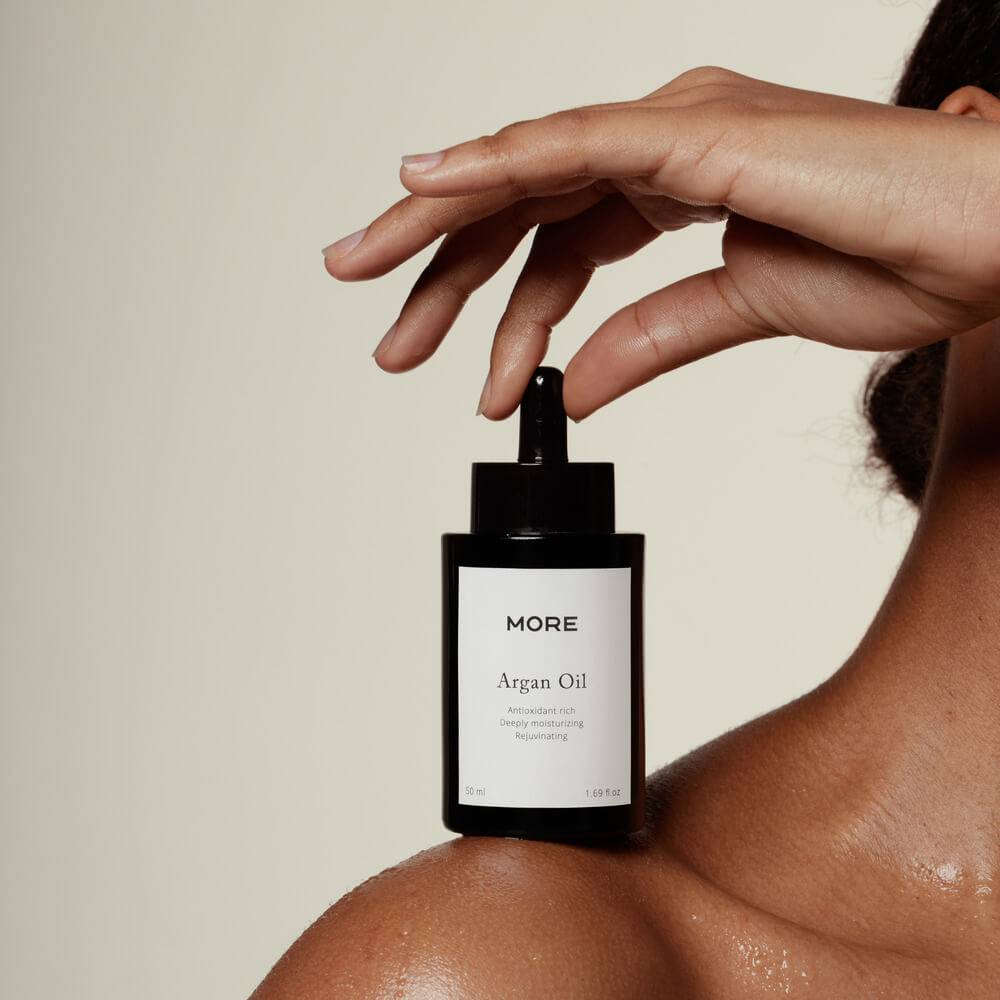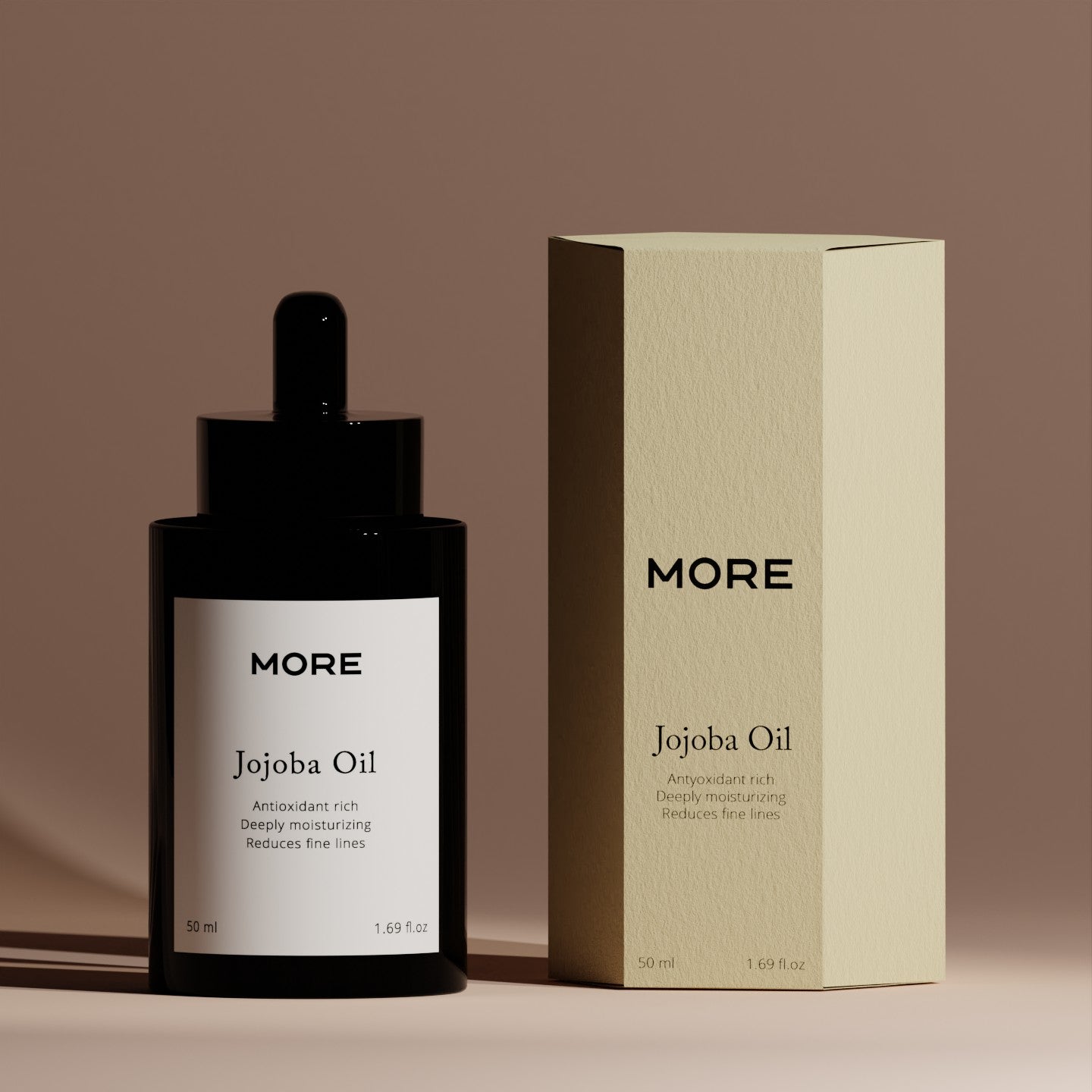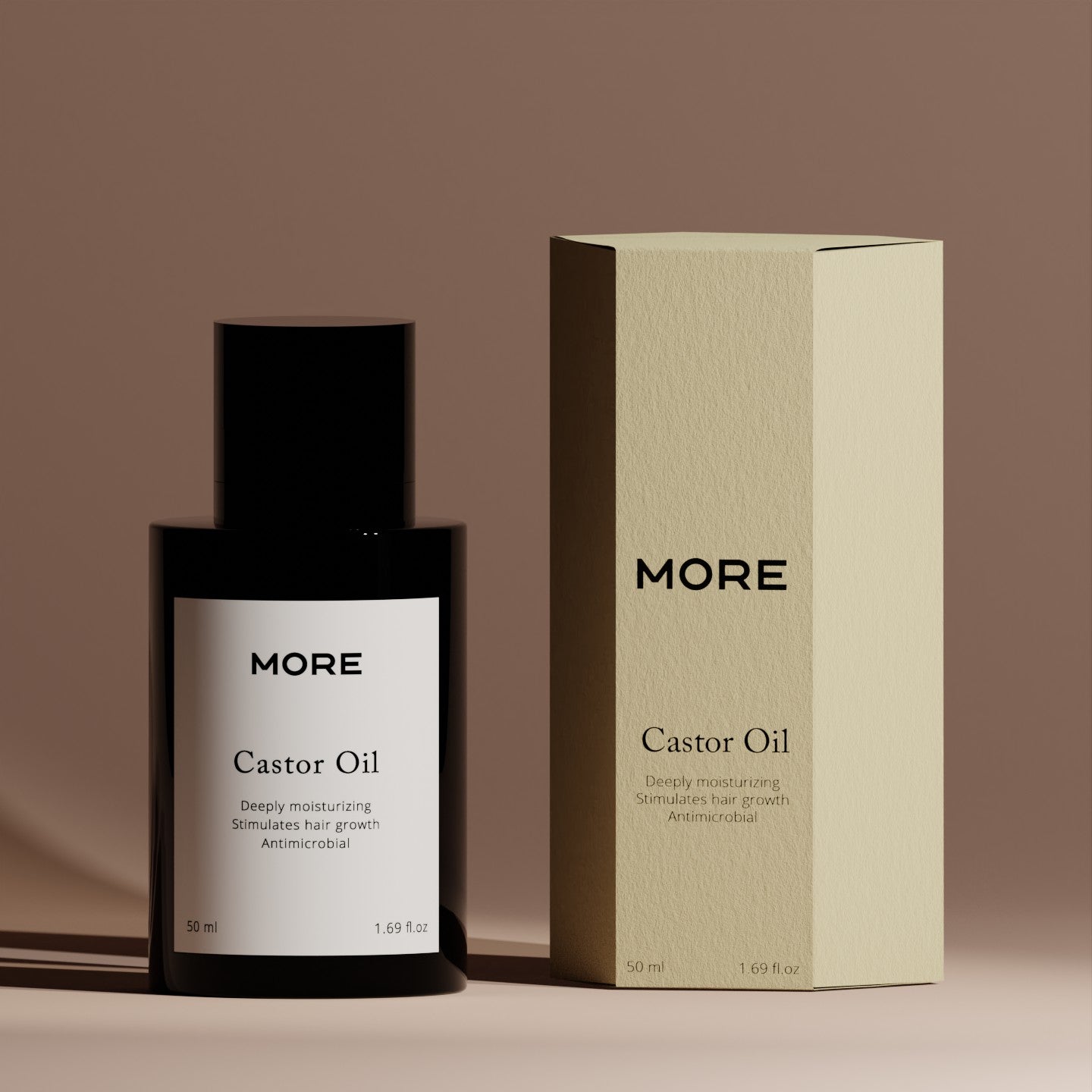What is acne and how does it develop?
Your skin has tiny holes called pores that can become blocked by oil, bacteria, dead skin cells, and dirt. When this happens, you may develop a pimple. If your skin is repeatedly affected by this condition and you develop more red pimples or red bumps, you may have acne.
There are different types of acne:
- Acne vulgaris, also known as teenage pimples because this is a common form of acne in adolescents and young adults.
- Acne fulminans is one of the forms of acne in which you see an acute worsening of existing acne.
- Acne neonatorum is a form of acne that is mainly seen in young children or newborns.
- Acne inversa, in which lesions develop as subcutaneous inflammations in the skin of skin folds.
- Acne conglobata, often caused by the male hormone, is the form of acne that persists after acne has cleared up in adolescents and young adults.
Acne is one of the most common skin conditions in the Netherlands. Although acne is not a life-threatening condition, it can be painful, especially if it is severe. It can also cause emotional distress. Many young people do not develop symptoms until later in life, when they are in puberty. Acne on the face can affect self-confidence and, over time, can cause permanent physical scarring. There are many effective treatments for forms of acne that both prevent acne and reduce the chance of scarring. In this blog we will discuss these in more detail.
What are the symptoms of acne?
Acne can be found almost anywhere on your body. The red pimples and red bumps usually develop on the face, around the mouth on the back and chest or on the shoulders. In places where bacteria can grow freely and where excessive sebum production plays a major role in the development of acne. If you have acne, you will usually see pimples with a white or black head. Another word for blackheads comedones is used to name these pimples pustules and papules. Blackheads occur on the surface of the skin, giving them a black appearance due to oxygen in the air. Whiteheads are subcutaneous inflammations, giving them a white appearance. Although blackheads are the most common lesions seen in acne, other types of acne can occur. Inflammatory lesions are more likely to cause acne scarring. These include:
- Papules are small, red, raised bumps caused by inflamed or infected hair follicles.
- Pimples are small red bumps with pus at their ends.
- Lumps are firm, often painful bumps under the skin's surface.
- Cysts are large lumps under your skin that contain pus and are usually painful.
What causes acne?
Acne occurs when the pores of the skin become clogged with oil, dead skin cells, or bacteria. The bacteria Propionibacterium acnes in particular causes the symptoms of acne. Each pore of your skin is the opening to a follicle. The follicle consists of a hair and a sebaceous (oil) gland. The sebaceous gland releases sebum (oil), which flows through the hair, out of the pore, and onto your skin. The sebum keeps your skin smooth and soft. One or more problems with this lubrication process can cause acne.It can occur when:
- too much oil is produced by your follicles (excessive sebum production)
- dead skin cells build up in your pores
- too much growth of bacteria that build up in your pores
These problems contribute to the development of pimples. A pimple appears when bacteria (propionibacterium acnes) grows in a clogged pore and the oil cannot escape.
What are the risk factors for developing acne?
Myths about what contributes to acne are quite common. There are many facts and myths about acne. Many people believe that there is a relationship between acne and diet. Foods with a high glycemic index such as chocolate or French fries are said to contribute to acne. Although there is no scientific support for these claims, there are certain risk factors for developing acne. These include:
- The influence of hormones and hormonal changes caused by puberty or pregnancy. In particular, the male hormone testosterone plays a role in the development of acne.
- Certain medical devices, such as certain contraceptive pills or corticosteroids
- A diet rich in foods with a high glycemic index, sugars or carbohydrates, such as bread and chips
- Parents who had acne
The people most at risk for developing a skin condition like acne are adolescents and young adults. During this time, the body undergoes changes influenced by hormones. These changes can cause excess sebum production, leading to an increased risk of acne. Hormonal acne associated with puberty usually subsides or at least improves as you reach adulthood.
How is acne diagnosed?
For acne symptoms, your doctor can diagnose it by examining your skin. Your doctor will identify the types of lesions and their severity to choose the best acne treatment. The doctor can then determine how many treatments are needed to prevent acne symptoms from getting worse.
How is acne treated?
There are a few self-care activities you can try at home to prevent pimples and clear up your acne. Home remedies for acne include:
- Prevent poor hygiene by cleansing the skin daily with a mild soap to remove excess oil and dirt
- Wash your hair regularly and keep it out of your face
- Use makeup that is water-based or labeled "non-comedogenic" (will not clog pores)
- Do not squeeze or pick pimples, which spreads bacteria (propionibacterium acnes) and excess oil from excessive sebum production
- Do not wear hats or tight headbands
- Don't touch your face
Natural skin oils
Castor oil also known as castor oil called has a cleansing effect and makes the skin free of pores. Due to the low molecular weight in the oil, it penetrates deeply into the skin and has a bactericidal effect. For this reason, castor oil is a good remedy for (mild) acne and gives dry skin and sensitive skin a fresh glow. To treat mild acne, dab a little pure castor oil onto your skin with a clean cotton pad before going to bed. The oil will reduce the redness and swelling of your acne spots over time. To prevent future breakouts, wash your face with warm water first. This will open your pores.Massage a small amount of oil (just a few drops) into the skin. It is best to let the natural oil absorb overnight. Wash your face in the morning and rinse off the oil. Rosehip oil can help prevent acne. The vitamin A in rosehip oil helps to counteract excessive sebum production in the skin. When the skin produces less sebum, blackheads and other skin impurities such as acne are prevented. In addition to preventing acne, the oil also works particularly well in treating acne scars. Dark (old) acne scars in particular fade when using rosehip oil.
Medication
If the above doesn’t help your acne, there are a few over-the-counter acne medications available. Most of these medications contain ingredients that can help kill bacteria (propionibacterium acnes) or reduce excess sebum production on your skin. Some of these medications have anti-inflammatory properties. These include:
- Benzoyl peroxide is found in many acne creams and gels. It is used to dry out existing red pimples and red bumps and prevent new ones from forming. Benzoyl peroxide also kills bacteria that cause acne (propionibacterium acnes)
- Sulfur is a natural ingredient with a distinctive odor found in some lotions, cleansers, and masks.
- Resorcinol is a less common ingredient used to remove dead skin cells.
- Salicylic acid is often used in soaps and for acne. It helps prevent pores from becoming clogged and prevents excessive sebum production.
Sometimes, people with a skin condition continue to experience symptoms despite various acne treatments. If this happens, it is best to seek medical advice for acne treatments that are specific to your skin. Your doctor can prescribe medications that can help reduce your symptoms and prevent acne scarring. These include:
- Topical or oral antibiotics have an anti-inflammatory effect and kill the bacteria that cause pimples. Usually antibiotics are only used for a short time so that your body does not build up resistance and you are susceptible to infections.
- Creams such as retinoic acid or prescription strength benzoyl peroxide are often stronger than over-the-counter treatments. They work to reduce excess sebum production. Benzoyl peroxide acts as a bactericidal agent that reduces the resistance of acne-causing bacteria against antibiotics. It also has moderate comedone destroying and anti-inflammatory properties.
- Women with hormonal acne can be treated with birth control pills or spironolactone. These medications regulate hormones that can cause acne by decreasing oil production.
- Isotretinoin (Accutane) is a vitamin A-based medication used to treat certain cases of severe nodular acne. It can cause serious side effects and is only used when other treatments have not worked.
Your doctor may recommend procedures to treat severe acne and prevent scarring. These procedures work by removing damaged skin and reducing oil production. They include:
- Photodynamic therapy uses medication and a special light or laser to reduce oil production and bacteria. Other lasers may be used alone to help improve acne or scars.
- Dermabrasion removes the top layers of your skin with a rotating brush and is best for treating acne scars as opposed to an acne treatment.Microdermabrasion is a gentler treatment that helps remove dead skin cells.
- A chemical peel removes the top layers of your skin. That skin peels away to reveal less damaged skin underneath. Chemical peels can improve mild acne scars.
Your doctor may recommend cortisone injections if your acne consists of large cysts. Cortisone is a steroid that is naturally produced by your body. It can reduce inflammation and speed healing. Cortisone is usually used in conjunction with other acne treatments.
What is the outlook for someone with acne?
Treatment for acne is often successful. Most people can expect their acne to clear up within six to eight weeks. However, flare-ups are common and may require additional or long-term treatment. Isotretinoin is the treatment that will produce the most permanent or long-lasting positive results. Acne scars can cause emotional distress and worsen mental health. But prompt treatment can help prevent scarring. Also, a dermatologist or medical specialist has treatment options designed to treat scars.
How can acne be prevented?
Acne is hard to prevent. But you can take steps at home to help prevent acne after treatment. These include:
- wash your face twice a day with an oil-free cleanser
- use an over-the-counter acne cream to remove excess oil
- avoid makeup that contains oil
- remove make-up and thoroughly cleanse your skin before going to bed
- shower after exercise
- avoid tight-fitting clothing
- healthy eating with a low glycemic index
- reduce stress
- prevent poor hygiene
Talk to your doctor or a medical specialist for more information about strategies to treat your acne.
=== blog products ===
Castor Oil | 100% Organic & Cold Pressed
=== blog products ===
Rosehip oil | 100% Organic & Cold-pressed
=== blog products ===

























